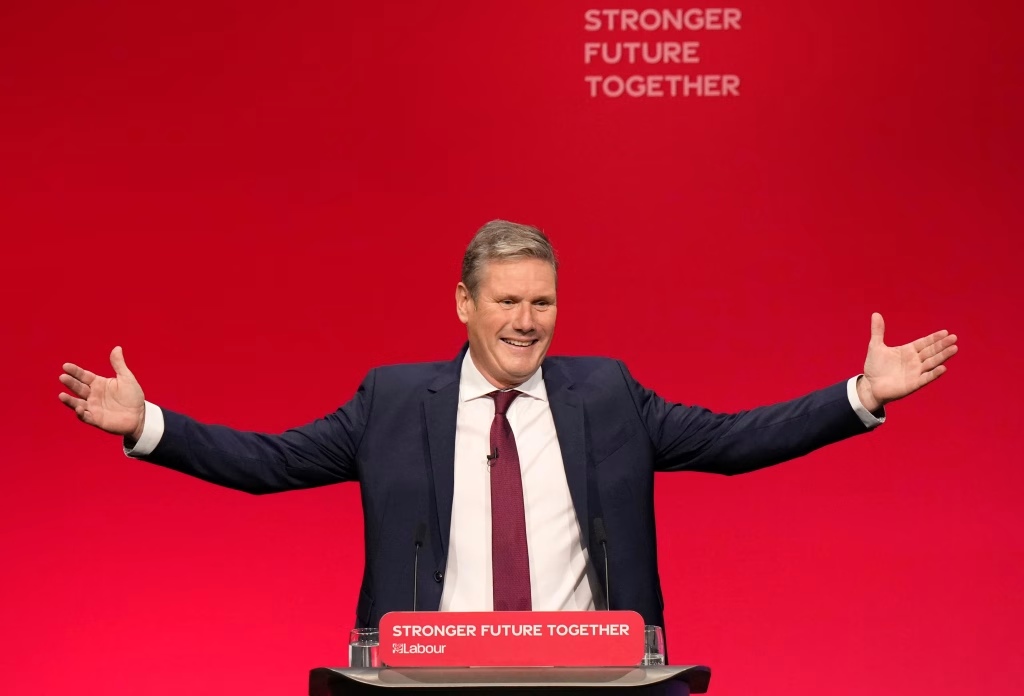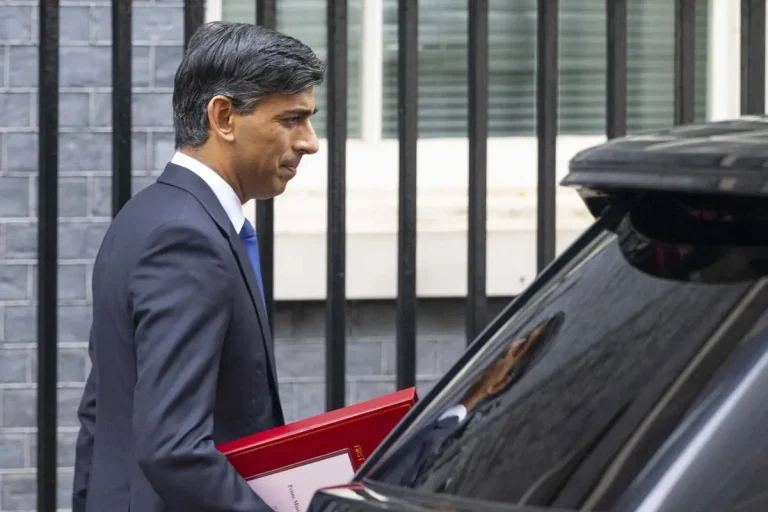In a stunning turn of events, Keir Starmer is set to become Britain’s next prime minister as his Labour Party clinched a massive majority in the 2024 parliamentary election. The incumbent Prime Minister, Rishi Sunak, finds himself on the losing end of a historic drubbing for his Conservative Party, marking a significant shift in the country’s political landscape.
Early results indicated that the centre-left Labour Party was on course to exceed exit poll predictions, likely securing 412 of the 650 seats in parliament. This astonishing reversal comes just five years after Labour’s worst performance since 1935, showcasing a remarkable comeback under Starmer’s leadership.

The election results would grant Labour a majority of around 170 seats, effectively ending 14 years of Conservative-led government marked by increasing turmoil and instability. The electorate’s decision signals a strong desire for change and a new direction.
Key Conservative Figures Fall:
The election night was particularly brutal for many high-profile Conservative politicians. Among those who lost their seats were former Prime Minister Liz Truss, whose brief and tumultuous tenure in 2022 significantly tarnished the party’s reputation and paved the way for Labour’s resurgence. Pro-Brexit lawmaker Jacob Rees-Mogg and former leadership contender Penny Mordaunt also faced defeat, reflecting widespread voter dissatisfaction with the party’s handling of key issues.
Despite the overwhelming losses, Rishi Sunak and his finance minister, Jeremy Hunt, managed to retain their seats, with Hunt’s victory being a notable exception to the night’s overall trend. The Conservative Party, however, fell short of the exit poll forecast of 131 seats, marking the worst electoral performance in its history.
You May Also Like: UK Election 2024 Results: Labour Party Wins With Majority
Factors Behind the Conservative Collapse:
Several factors contributed to the Conservative Party’s downfall. The cost-of-living crisis, coupled with years of political instability and infighting, significantly eroded public trust. Since the Brexit vote in 2016, the country has seen five different prime ministers, each struggling to navigate the post-Brexit landscape and manage internal party divisions.
Rishi Sunak, who took over as Prime Minister in 2022, faced immense challenges in uniting his party and addressing the economic concerns of the electorate. His inability to present a coherent vision for the future further alienated voters, who ultimately turned to Labour for a fresh start.
Keir Starmer’s Vision for the Future:
Keir Starmer’s victory speech was a moment of triumph and promise. “This is a new dawn for Britain,” Starmer declared. “We have been given a mandate to lead, to heal, and to rebuild. Our focus will be on creating a fairer, more just society where everyone has the opportunity to thrive.”

Starmer’s campaign emphasized key issues such as revitalizing the National Health Service (NHS), increasing funding for education, and implementing comprehensive economic reforms. His pragmatic approach and commitment to addressing the concerns of ordinary citizens resonated with voters across the nation.
Facts and Highlights:
- Record Turnout: This election saw one of the highest voter turnouts in recent history, reflecting the electorate’s eagerness for change.
- Historic Losses: The Conservative Party’s defeat is the worst in its history, underscoring the magnitude of Labour’s victory.
- Surprise Retentions: Despite the overall trend, Jeremy Hunt’s retention of his seat was a surprising bright spot for the Conservatives.
- Political Comebacks: Keir Starmer’s journey from a struggling opposition leader to Prime Minister-elect is a testament to his strategic acumen and resilience.
The Road Ahead:
As Keir Starmer prepares to take the reins of government, the focus will be on translating campaign promises into tangible policies. The new government’s success will depend on its ability to effectively address the economic and social challenges facing the nation.
The 2024 general election marks a pivotal moment in British politics, signalling a shift towards a new era of leadership and governance. As the Labour Party takes charge, the world watches with keen interest to see how Starmer’s administration will navigate the complexities of the modern political landscape and fulfil the aspirations of a hopeful electorate.
You May Also Like: 10 Prominent UK Women in Politics: Breaking The Barriers


